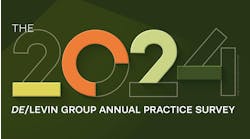Have you seen posts similar to this on social media? “Dr. Smith is a terrible employer. He doesn’t appreciate his workers, he pays low wages, and he plays favorites. It’s why I quit!”
That’s not a real quote, but it could be. We’ve seen versions of it throughout the years, some significantly worse and more disparaging. Even if this hasn’t happened to you, it’s probably something you worry about, even if just a little bit.
Inevitably, the thinking becomes, “I’ll simply have all my employees sign a confidentiality and nondisparagement agreement.” While that may have worked years ago, to quote Bob Dylan, “The times, they are a changin’.”
National Labor Relations Act (NLRA)
A significant but often overlooked law, the NLRA governs aspects of the employment relationship, union or not. One noteworthy part of the NLRA is Section 7 rights, which, among other things, protects individuals who engage in “protected concerted activities.” This includes the ability to discuss one’s pay, benefits, and working conditions, even on social media, and these protections extend to former employees as well.
Employers are prohibited from having a policy, agreement, or contract that prohibits or limits Section 7 rights. As such, whether during or after employment, a confidentiality and nondisparagement clause that does so could result in consequences with the National Labor Relations Board (NLRB).
You might also want to read: Think before you make your employees clock out
Severance agreements
A severance agreement is a contract that an employer may ask an employee to sign when they’re terminated from a job. It usually includes severance pay in exchange for an employee’s release of their claims against the employer. Most of these agreements have some type of protection for the employer regarding confidentiality and nondisparagement. Thanks to a new NLRB decision, these clauses will be limited in the future.
McLaren Macomb, 372 NLRB No. 58 (2023)
The employer in the NLRB case McLaren Macomb issued a severance agreement to 11 furloughed employees that contained both confidentiality and nondisparagement clauses. It required them to refrain from disclosing the agreement to nearly “any third person.” It stated, “At all time hereafter, the employee agrees not to make statements to employer’s employees or to the general public that could disparage or harm the image of the employer, its parent and affiliated entities, and their officers, directors, employees, agents, and representatives.”
Prior to this case and subsequent decision, clauses of this kind were common. Now, according to the board, “a severance agreement is unlawful if its terms have a reasonable tendency to interfere with, restrain, or coerce employees in the exercise of their Section 7 rights.” The Board further clarified this nondisparagement clause violated employees’ rights because “public statements by employees about their workplace are central to the exercise of employee rights under the act.”
Jennifer A. Abruzzo, General Counsel, Memorandum GC 23-05
This memo specifically provides guidance in response to inquiries about the McLaren Macomb decision. This may be helpful to employers thinking about using confidentiality and nondisparagement clauses, whether part of a severance agreement or otherwise.
In this document, it is clear that severance agreements may still be offered if the language is narrowly tailored to meet certain employer concerns and do not interfere with employee rights. It is also made clear that severance agreements need not be signed by the employee in order to render them unlawful.
Of particular note, the memo states, “Based on extant Board law, overly broad provisions in any employer communication to employees that tend to interfere with, restrain, or coerce employees’ exercise of Section 7 rights would be unlawful if not narrowly tailored to address a special circumstance justifying the impingement on worker rights.”
Today’s reality is that controlling these actions by employees is limited, and confidentiality and nondisparagement clauses may no longer help you. It’s best to focus on what you can control, which is your work environment, culture, policies, behavior, and actions, all of which will either help or hinder how you and your workplace are viewed by others.
Make your office a great place to work and treat others with respect. While this may not prevent all negative press, hopefully the good will far exceed the bad, rendering the negative press so negligible that it’s not even worth your concern.
Editor's note: This article appeared in the July 2023 print edition of Dental Economics magazine. Dentists in North America are eligible for a complimentary print subscription. Sign up here.






